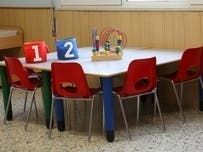Kids & Family
Parents, Day Care Providers Concerned About Reopening Guidelines
Some parents are considering different options for child care after learning about new social distancing restrictions at day care sites.

BOSTON — The announcement June 1 that day care centers can resume operation in phase two of the Massachusetts reopening plan was a relief to some families that have been struggling to balance child care with the demands of working from home.
But some families say the guidelines will make day cares less welcoming environments, and some day care operators say they go too far and aren't practical.
Day care facilities must comply with restrictions on class size, activities and cleaning rules. A maximum of 10 children will be allowed in one room at a time, along with two adults, and the limit is even lower — seven — for infants 14 months or younger.
Find out what's happening in Bostonwith free, real-time updates from Patch.
Related: Everything Reopening In Both Parts Of Phase 2
Day care centers also are required to promote physical distancing and limit the sharing of toys. Drop-off times must be staggered and parents have to use one point of entry to drop off and pick up their children.
Find out what's happening in Bostonwith free, real-time updates from Patch.
Alicia Randall normally sends her son Clark, 2, to Half Pints, a day care center in Tewksbury. Since the shutdown, she’s been watching Clark and working for Boston Scientific from home while her husband, Matthew, is out working as a contractor.
Although it’s been challenging to work while taking care of a toddler, she resists the idea of sending Clark back under the guidelines, particularly those about social distancing. She worries that children will get the wrong message about interacting with other people.
“They will be conditioned in no time to not go near you or not want to be eating next to you, and it’s just heartbreaking as a mother, as a human,” Randall said.
Randall said she has to talk to her son’s day care center before deciding whether she’ll send him back. She said she’s also written letters to the Department of Early Education and Care and the commissioner, in addition to signing petitions to try to change the guidelines.
“Truthfully, I’d rather lose my job than send him in such restrictions,” Randall said.
Lindsay McCluskey worries about the psychological impacts of the guidelines on her son, Julian, who is 3.
She and her husband, Matias Ramos, have both been working from home — she as deputy director at Community Labor United, and Ramos as the director of programs at Phillips Brooks House at Harvard University.
Julian is in a class of 20 other children at Metro Children’s Learning Center in Malden, so his providers will have to choose who can return. McCluskey said she is exploring other options, including hiring a nanny or setting up some sort of cooperative with other parents who don’t want to send their children back to day care.
Lucy Conetta, who owns Lucy’s Little Wonders day care in Brighton, said the guidelines are “stupid, plain and simple.”
Conetta said she’ll have to tell some families that she doesn’t have space for them in her center any more.
“We instilled certain things with these families, so there’s a relationship between providers and families,” Conetta said. “And now I feel like it’s a broken relationship because I have to determine which two children can’t come back.”
Conetta, who normally has 10 children in her care, said some families were able at first to keep paying enough to support her and her assistant. But when some families dropped to half pay, she had to file for unemployment.
McCluskey said as families struggle to decide whether their children should go back to daycare or seek another form of care aren’t new — they've just been brought to the forefront because of the pandemic.
“I think it just really points to the need to have a universal child care system that everyone has access to and that’s affordable for families,” she said. “That’s very different from the system that we have right now, which is mostly funded by families themselves.”
Get more local news delivered straight to your inbox. Sign up for free Patch newsletters and alerts.